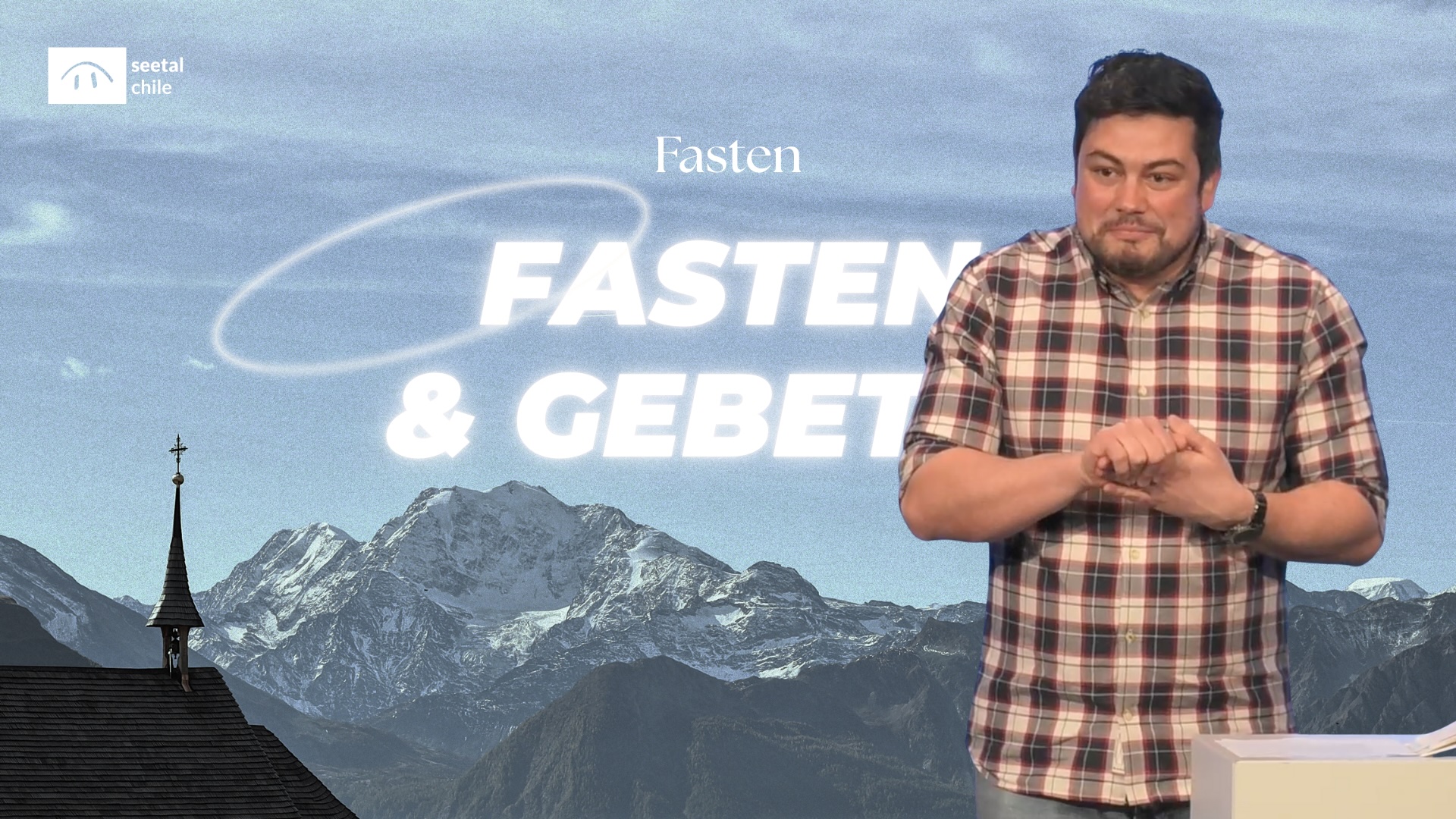Risky love seeks and finds
Series: EIFACH muetig – with Jesus as a role model | Bible text: Luke 15:1–7
The religious elite of the time took offence at the fact that Jesus associated with people of ill repute and lived in community with them. They believed that the «clean» must be separated from the «unclean». Jesus responds to these accusations by telling the parable of a shepherd who leaves ninety-nine sheep behind to look for the one that is lost. The joy over the one sheep that was found and turned back was immense in both the visible and invisible world.
It’s actually a shame that the Pharisees and scribes didn’t get on with Jesus at all. Both parties only wanted to do God’s will. The difference was that the Pharisees and scribes believed they were acting in accordance with God’s will, whereas Jesus was actually doing so. This discrepancy led to conflicts that were always fuelled by the same thing. Today’s Bible passage offers a taster: «Tax collectors and others who were considered sinners often came to hear Jesus teach. The Pharisees and scribes took offence at the fact that he associated with such disreputable people and even ate with them!» (Luke 15:1f NLB).
Exuberant love
The Pharisees were the largest religious party of the Jews at the time. They were committed to the strictest observance of the law and tried to keep Judaism pure by warding off foreign influences. They agreed with the views of the scribes and were closely associated with them.
Through contact with the customs officers and sinners Jesus became unclean according to their theological worldview. They differentiated between clean and unclean; between the pious and the wicked world. In doing so, they took the purity regulations from the Torah seriously. There it is written in detail which actions would make the Israelites unclean. Examples include eating certain animals, having sexual intercourse with certain people, touching lepers and much more. It is interesting to note that it was also an abomination for the Egyptians to eat with the Israelites because it defiled them (Genesis 43:32). The pure things had to be separated from the impure. Eating together was an expression of deep community in the Orient. Because the Jews of the time did not want to contaminate themselves, they did not eat with non-Jews or sinners like whores or tax collectors.
That Jesus with sinners was a real affront to the religious sensibilities of the establishment at the time. According to Greek grammar, the word Sinners verse 1 describes a continuous and constantly repeated process. So Jesus had table fellowship with notorious sinnerswho did not abide by the commandments of the Torah and the interpretation of the scribes.
Jesus had no fear of contact with unclean people and sinners. The reason lies in a promise from Isaiah 6, of which Jesus is the fulfilment. Isaiah is frightened by the holiness of God and realises his uncleanness (v. 5). Then an angel touches his mouth with a glowing coal and says: «See, this has touched your lips. Now your guilt is cancelled; your sins are forgiven» (Isaiah 6:7 NLB). The coal is a foreshadow of Jesus. Through Him, impurity and sin are no longer contagious, but are eradicated. This was shown very clearly in Jesus» dealings with lepers. Despite their uncleanness and risk of infection, Jesus did not become unclean, but healed the lepers when He touched them.
Pharisees and scribes were good people who were deeply committed to the word of God. Nowadays, these people would be found in Bible-believing free churches. We should therefore not point our fingers at them, but learn self-critically from their blind spots. Our task as a church is to represent Jesus on this earth, to spread his odour. Unfortunately, nowadays, free church members tend to be associated with terms such as «self-righteous», «judgemental», «delimiting», «know-it-all», which smells suspiciously of Pharisees and scribes.
At the JMS youth movement camps that I led 20 years ago, we always had young people with us who regularly smoked cannabis. As a leadership team, we had to make decisions. Do we demand abstinence or do we want these people in our community? We wanted to. That’s why we planned a time each day when the young people concerned were allowed to smoke away from us, in an organised and supervised manner. A few times I was told by other youth leaders that they would never tolerate cannabis use. I always replied: «It is a quality feature of JMS that such people are involved.» But we wanted to open our arms and hearts to these «sinners» so that they could come to know Jesus. For some, this happened and they were freed from their addiction. Jesus reaches his goal with every person. With this hope in mind, I hope that we as seetal chile will become a real centre of attraction for Sinners become.
The line between clean and unclean, sinner and righteous, does not run between the visible church and society. Jesus said that we should let the weeds and the wheat grow together (Matthew 13:24–30). The separation should only take place on the day of harvest. It is the day when Jesus returns and marries His pure and spotless bride, who has been sanctified by Him.
Jesus had maximum love for people and maximum love for the Word of God. He was the Word of God and His love went beyond the capacity of all well-intentioned theology.
Seeking love
«That is why Jesus said them the following parable: «If someone had a hundred sheep, and one ran away and got lost in the desert, would he not leave the ninety-nine sheep behind to look for the lost one until he found it again?» » (Luke 15:3f NLB).
The parable that Jesus tells here is clearly addressed to the Pharisees and scribes («so Jesus told them the following parable», V.3). In this story there is an astonishing proximity to a prophetic text from the Old Testament. There God says: «As a shepherd takes care of his sheep when they have strayed, so will I take care of my sheep and deliver them from all the places where they were scattered on that dark and threatening day» (Ezekiel 34:12 NLB). Jesus does nothing other than translate this biblical quotation into a living parable.
With this, Jesus says of Himself that He is the God who is now the «lost sheep», the publicans and tax collectors. Sinnerssearch and rescue. «And then he would happily carry it home on his shoulders» (Luke 15:5 NLB). The recovered animal is either injured or too weak to walk on its own. So it has to be carried. Jesus joyfully realises here what was described about God’s actions in Ezekiel 34:16: «I will seek what is lost and bring home what has gone astray. I will bind up the wounded and strengthen the sick […]» (NLB). The shepherd does not complain, does not get angry, does not insult the animal. He is «full of joy» that he has found it.
Jesus not only has an open door for the lost sheep, but also takes the path himself to find them. This movement towards the lost culminates in Jesus coming to earth as a human being. The irony of the story is that it is precisely because of this seeking of publicans, harlots and other sinners was condemned to death on the cross. There He created the condition that Sinners can be saved. Jesus» openness to marginalised social groups brought him the greatest difficulties in his earthly career. His searching love was unacceptable from the point of view of the religious elite.
Joyful finding
«Back home, he would call all his friends and neighbours together to rejoice with him that he had found his lost sheep. In the same way, the joy in heaven over one lost sinner who returns to God is greater than over ninety-nine others who are righteous and never strayed from the path in the first place!» (Luke 15:6–7 NLB).
Finding a lost sheep is a source of pure joy! The word comes up three times Joy resp. rejoice in this short parable. The shepherd, his friends and neighbours are just as joyful as the angels in heaven. The repentance of a single sinner therefore has a huge impact in the visible and invisible world. That is why it is worth leaning out far and reaching out. The only ones who cut themselves off from this joy were the Pharisees and scribes.
It is very revealing to observe how the protagonist changes in this parable. At first, it is the good shepherd who sets out in search of the lost sheep. At the conclusion, the lost Sinners to the doer: He returns to God. The lost sheep is not found against its will and brought back to the flock. Turning back to God is his responsibility.
Provided that a tax collector, a prostitute or any other Sinners was the experience of the risky, unlimited love of Jesus. This is exactly what lost people should learn from the church. Many people think that every representative of this disreputable social group who met Jesus immediately changed their lives. Rather, this parable suggests that some turned back and others went away sad. Not all of these disreputable people with whom Jesus ate were later followers of Jesus.
I wish we were a church through which many «lost sheep» could experience God’s unlimited love. We have to endure the tension that some people accept Jesus» offer of repentance and others go away sad. We do not have to be afraid of our church being defiled by sinners. Jesus» purity is stronger than the greatest impurity of a person.
Who are the «ninety-nine others who are righteous and do not stray from the path in the first place»? In the logic of the parable, it is the Pharisees and scribes. If only the critics of Jesus» exuberant love would wake up from their delusion! Then they would know that they too are sick, blind and sinful and need a Saviour – no less than the publicans and tax collectors. Sinners (John 9:40f). Jesus says: «The healthy do not need a doctor – but the sick do. I have come to call sinners, not people who already think they are good enough» (Mark 2:17 NLB).
Due to our socialisation and history, many of us are closer to the 99 sheep than the one lost sheep. May the Spirit of God open the eyes of our hearts so that we may recognise our lostness without Jesus and rejoice in his love from the bottom of our hearts. And – let us open our hearts and doors wide for the lost sheep of our time. A well-known quote reads: «You are more lost than you think; you are more loved than you realise; you are more saved by Jesus than you can imagine.»
Possible questions for the small groups
Read the Bible text: Luke 15:1–7
- Why did the Pharisees and scribes take such offence at Jesus associating with tax collectors and others? sinners gave away? Try to understand the good intentions of these people who had committed themselves to God’s will.
- In today’s context, from the perspective of Bible-believing Christians, which people could be «tax collectors and others»? Sinners» be?
- How should we as a church behave towards such people? To what extent do we need to distinguish ourselves? What do you think about the example from the JMS movement?
- Where is the line between pure and unclean sinful and holy?
- What is the prerequisite for a Sinners can turn back? When was the last time you experienced the joy of a person turning to God?








